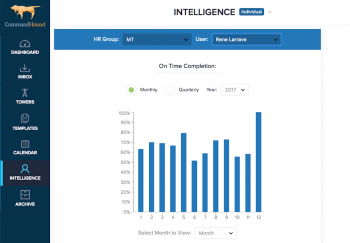Headache-causing. Frustrating. Sluggish. These are some of the terms that go through our heads when trying to decode the complex regulatory requirements of Sarbanes-Oxley (SOX).
Insights: Management
Escalation is a very powerful tool to make sure things get done at work. However, it should be used carefully and judiciously.
It seems like everyday we hear about yet another story about sexual harassment in the workplace. Have you wondered what is the best way to minimize the risk of this happening in your company?
Culture is one of the most central features of a company, and almost all executives (84% from a Deloitte study) believe that it is crucial to determining success.
It is a well known fact that an effective way to reduce one’s workload and stress levels is by delegating in the workplace. Delegating, however, requires trust in the person you are delegating to and an understanding that things may not be perfect.
I’ve always believed that accountability is achieved when people feel a sense of belonging and personal pride of being part of a great organization, with great leaders, doing something worthwhile.
Once employees truly buy into the meaning and mission of an organization, all they need is a road map of where the organization is headed, what needs to be done, and when it needs to be completed. With this road map they can see how their work contributes to the overall success of the company.
Nowadays, we are spending more and more time working at all hours of the day and night. Worst yet, we talk ourselves into believing that things will get better soon.
The Volkswagen emissions scandal figures prominently in the Catalog of Catastrophe that the International Project Leadership Academy has compiled of the most spectacular project management failures in the last 10 years.
The revelation that such a revered and trusted brand had taken previously inconceivable steps to deceive both regulators and the public in the name of profit margins was a shock to the world.
We all agree that decision-making is a critical component in any business. Informed and timely decision-making is a goal we all aspire to improve on. So what happens when responsibilities and ultimate accountability are not clearly defined?
We have found that every team is made up of two broad types of people– the Idea Makers and the Doers. If you’ve ever taken a Myers Briggs test, you might know these two groups as Judgers (J) and Perceivers (P).







